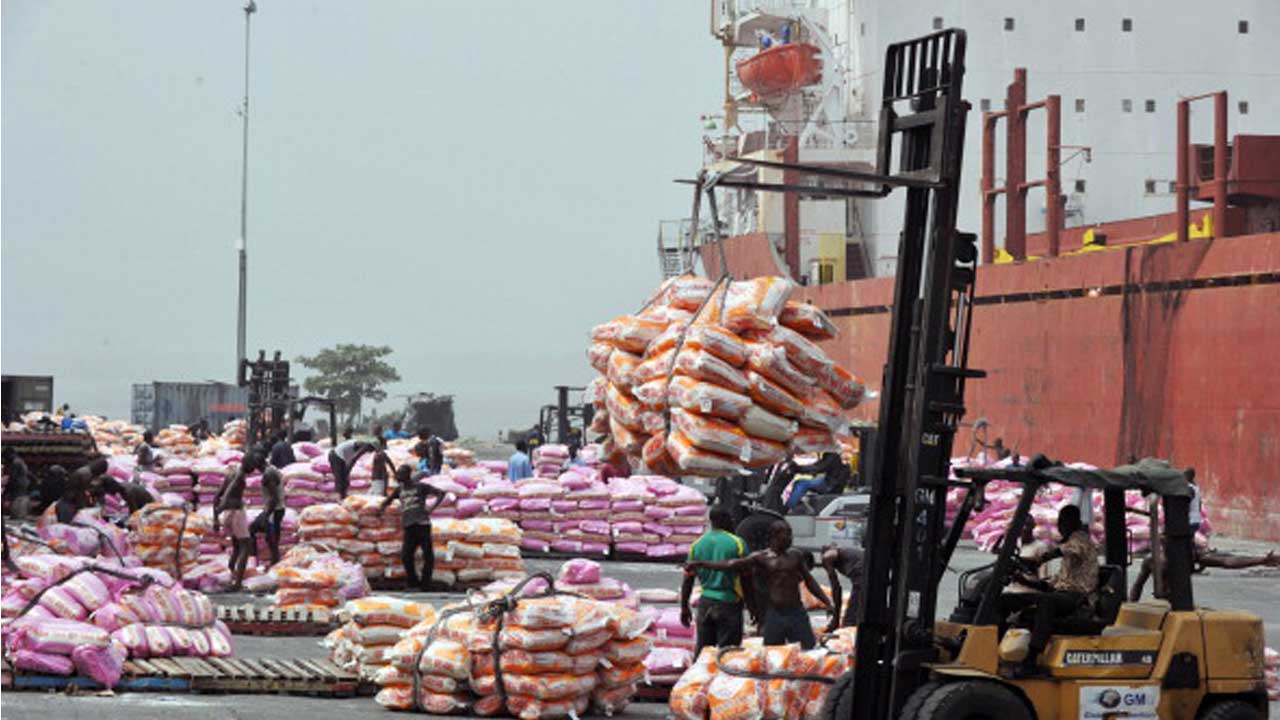Nigeria has spent $1.2bn on food importation, doubling the foreign exchange used for the importation of food products in the fourth quarter of last year.
Central Bank of Nigeria has supplied foreign exchange from October 2020 to March 2021, despite the ban directive of the President, Muhammadu Buhari, who directed the Central Bank to issuing forex for food and fertilizer imports.
Read Also: Onne Terminal Commences Operation, To Get $100m Investment
Buhari gave the directive to the CBN in September at a meeting of the National Food Security Council at the Presidential Villa, Abuja, saying that firms that were bent on importing food should source their forex elsewhere.
“Nobody importing food should be given money,” he was quoted as saying in a statement from the Senior Special Assistant to the President on Media and Publicity, Garba Shehu.
The forex used for food products imports, however, rose from $121.13m in September to $198.43m in October, $204.76m in November and $305.88m in December, according to the CBN data on sectoral utilisation for transactions valid for forex.
The amount of forex used for the importation of food production into the country surged by 118.60 per cent to $709.07m in Q4 2020 from $324.37m in Q3.
Food product imports gobbled up $582.38m forex in the first quarter of this year, compared to $470.01m in Q1 2020, the CBN data showed.
Forex supply for food imports rose from $163.60m in January to $197.73m in February but declined to $171.05m in March.
The CBN’s breakdown of sectoral utilisation of forex showed that food imports accounted for about 11.68 per cent of the $4.99bn utilised for imports in the country in Q1 2021.
Amid the economic fallout of the COVID-19 pandemic, forex supply for food imports fell by 9.22 per cent last year to $1.87bn from $2.06bn in 2019, accounting for about 6.57 per cent of the $28.46bn utilised for imports.
The apex bank, in June 2015, excluded importers of 41 goods and services, including some food products, from accessing forex at the country’s forex markets in a bid to conserve the external reserves as well as encourage local production of those items.
Following the forex restriction, the amount of foreign currency used for imports in the country plunged to $24.718bn in 2015 from $34.202bn in 2014. It further fell to $17.154bn in 2016 and $15.161bn in 2017 but rose to $15.87bn last year.
The forex utilised for food imports also dropped to $3.42bn in 2015 from $5.03bn in 2014. It dipped further to $1.79bn in 2016 and $1.51bn in 2017 but increased to $2.31bn in 2018.
In December 2018, the CBN included fertiliser on the list of 41 items classified as ‘not valid for foreign exchange’ in the Nigerian forex market.
The items are rice, meat and processed meat products, chickens, eggs, tomatoes and tomatoes paste, and vegetables and processed vegetable products.
The central bank said in July 2019 that it had restricted the sale of forex on the importation of milk from the Nigerian forex market.

